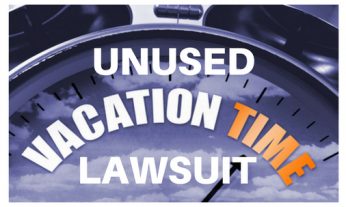 Reznik v. International Business Machines Corporation lawsuit. How much money is owed to an exiting employee for unused vacation time? Lots of us are familiar with “use it or lose it” vacation time policies – in which an employee forfeits any unused vacation time that he or she still has by the end of a year. In California, these types of policies are generally considered illegal. The California Supreme Court stated in the case of Suastez v. Plastic Dress-Up Co. that when an employer offers vacation time, that time vests, and is protected from forfeiture of unused vacation time.
Reznik v. International Business Machines Corporation lawsuit. How much money is owed to an exiting employee for unused vacation time? Lots of us are familiar with “use it or lose it” vacation time policies – in which an employee forfeits any unused vacation time that he or she still has by the end of a year. In California, these types of policies are generally considered illegal. The California Supreme Court stated in the case of Suastez v. Plastic Dress-Up Co. that when an employer offers vacation time, that time vests, and is protected from forfeiture of unused vacation time.
This means that when an employee’s position is terminated, the employee is most likely entitled to compensation for any unused vacation time that the employee has accumulated. Section 223.7 of the California Labor Code states that an employee in this situation must be paid for all vested vacation time at his or her final salary rate. (There is an exception, however, if a collective bargaining agreement is in place, and the agreement allows vested vacation time to be forfeited.)
IBM was recently accused of violating this statute by a former employee named Yakov Reznik.
Reznik began working for IBM in 2012, and went on long term disability in 2014. During his time at IBM, he did not take any vacation days. He maintained that IBM failed to fully compensate him for his unused vacation days at the conclusion of his employment – and alleged that IBM’s real vacation policy is significantly different than its stated policy.
Does IBM’s Unused Vacation Time Policy Violate the Labor Code?
IBM’s stated policy for employees working in California is often referred to as the “California Plan.” According to the plan, employees with less than 10 years of experience at IBM, such as Reznik, may accrue up to 15 vacation days per year. In addition, employees are given “personal choice holidays,” and are allowed to carry over up to six unused personal choice holidays per year.
Under the California Plan, Reznik had accumulated six unused personal choice holidays, and had accrued 15 vacation days. When Reznik left IBM, he was paid $12,502.75, which amounted to 25 days of work at the salary he had been receiving.
Reznik alleged that IBM’s practices did not adhere to the California Plan. He claimed that he had been shown a PowerPoint presentation which stated that unused days cannot be carried over from one year to another, and that they cannot be “cashed out.” He alleged that this represented IBM’s true policy on the accrual of vacation time. He also argued that personal choice holidays should be regarded as vacation days, and thus should be subject to Section 227.3.
At trial, Reznik’s complaint was dismissed. The U.S. District Court for the Northern District of California granted IBM’s motion for summary judgment, holding that Reznik received proper compensation for his vacation time.
The ruling pointed out that, regardless of the language of the PowerPoint presentation, IBM had allowed Reznik to accrue 15 days worth of vacation time from a previous year and had paid him for his six unused personal choice holidays as though they were vacation days. According to the ruling, Reznik was only entitled to payment for 21 days of work, and thus he had actually been overpaid by four days.
How Do Your Company’s Unused Vacation Time Policy Hold Up?
Would you like feedback from an attorney about your Sonoma County, Mendocino County or Lake County California company’s overtime policies? The employment and labor law attorneys at Beck Law P.C. are available to answer your questions. You can call or email our office in Santa Rosa today.
